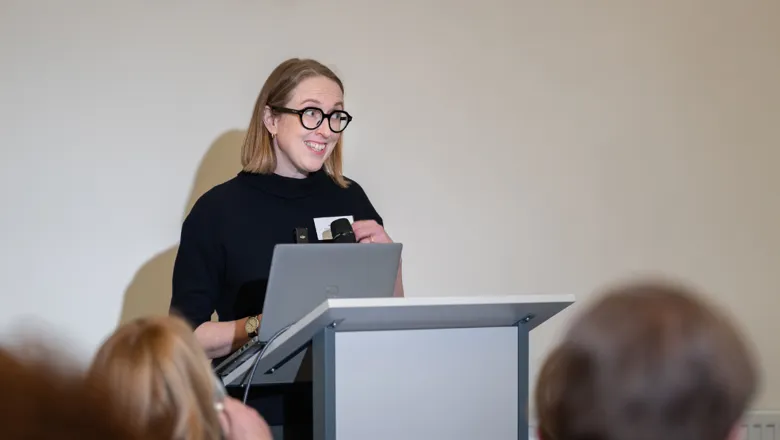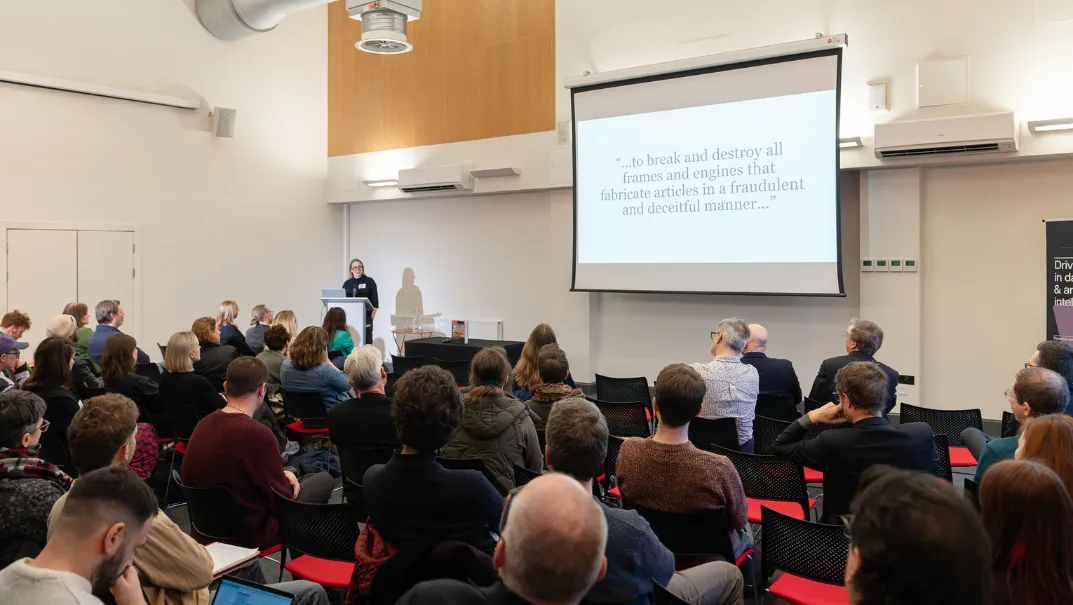Discussions of AI’s relationship to literature offer us the chance to look critically at some of the fundamental assumptions we have about human life. By examining the relationship between intelligence, language, and meaning, we’re not only able to better understand contemporary technology, but we also gain deeper insight into what makes us human. Artificial intelligence and algorithmically generated text provide a background against which we can gain access to what is really powerful and important about our human traditions of literature and language.
Dr Michael Marcinkowski, Director of Education, Digital Futures Institute
29 April 2025
New handbook explores the future of literature in the AI era
The Routledge Handbook of AI and Literature offers perspective on the past, present and future of AI and literature.

Professor Kate Devlin, Chair-Director of the Digital Futures Institute, and Dr Michael Marcinkowski, Director of Education, contributed to The Routledge Handbook of AI and Literature, released in early 2025.
Speaking at the launch event for the handbook, organised by the Jean Golding Institute at the University of Bristol, Professor Kate Devlin said: ‘There’s never been a better time to look at AI. This book deals with many different aspects of how AI intersects with literature in a way that it has had its origins in the past in the stories we tell, right through to the science fiction fields we have today.’
There has never been an intelligent literature
Dr Michael Marcinkowski’s chapter, There has never been an intelligent literature, explores the relationship between language and intelligence. It highlights how language ability has historically been seen as an indicator of intelligence, a notion reinforced by publicity around the rise of generative AI, like large language models.
Developing distance between the concepts of literature and intelligence, the chapter looks at the example of the 20th century poet Jackson Mac Low who employed methods of chance operation to create his poems. By using techniques which allowed for random selections of words to be included in his poems, Mac Low’s work illustrates how the pleasures of literature come through social and collaborative processes rather than intellectual ones.

Luddites, literature, and LLMs
Professor Kate Devlin’s postscript, Luddites, literature, and LLMs, reflects on the revolution in AI and Literature brought about by recent innovations in Large Language Models and platforms such as ChatGPT. It argues that interdisciplinary work is a necessary approach for understanding the inputs and impacts of AI, and studies of literature and media are a core part of that.
The insights offered by literature and digital humanities researchers examining fields like literary criticism, film studies, narratology, humour theory, poetry, science fiction, and creative writing are crucial for expanding our understanding of AI. They establish a critical framework to question the concepts of authorship, voice, narratives, ethics, and co-creation in human and machine expression.
Professor Kate Devlin, Chair-Director, Digital Futures Institute
The Routledge Handbook of AI and Literature, co-edited by Will Slocombe (University of Liverpool) and Genevieve Liveley (University of Bristol), looks into the application of AI in literary contexts, and how literary lenses can be used to better understand human interactions with AI. It features contributions from researchers in computer science, art, poetry and AI.


